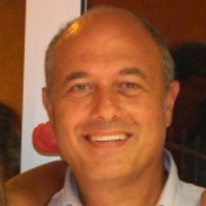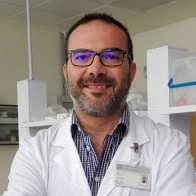Molecular Landscape of Cutaneous Wound Healing in Health and Disease
A special issue of Pathophysiology (ISSN 1873-149X).
Deadline for manuscript submissions: closed (15 January 2024) | Viewed by 201
Special Issue Editors
Interests: nose-to-brain delivery; applications of nanoparticles to drug delivery; Parkinson’s disease; mucopenetration; mesenchymal stem cells; exosomes; airway diseases
Special Issues, Collections and Topics in MDPI journals
Interests: mesenchymal stem cells; cystic fibrosis
Special Issues, Collections and Topics in MDPI journals
Interests: gene therapy of cystic fibrosis; cellular therapy of cystic fibrosis; CFTR “interactome”; pathophysiology of cystic fibrosis lung disease
Special Issues, Collections and Topics in MDPI journals
Special Issue Information
Dear Colleagues,
Skin wound healing is an orderly and highly coordinated process aiming to restore the cutaneous barrier function, consisting of four temporally overlapping phases, i.e., hemostasis, inflammation, proliferation, and tissue remodeling. A plethora of cell types (e.g., platelets, neutrophils, macrophages, endothelial cells, fibroblasts) participates in all these four stages, which represent a distinct equilibrium among pro- and anti-resolutive phenomena. For example, excessive inflammation delays wound healing by continued destruction of wound tissue, morbidity conditions such as vascular diseases, large areas, age, infection, diabetes, and many other factors may delay wound healing, resulting in chronic non-healing wounds. In current clinical practice, several treatments, such as wound dressings, skin autografts, and tissue engineered substitutes, and skin autografts are available for wound healing, however their effectiveness is mediocre. Therefore, it is urgent to understand the biological and molecular mechanisms to develop more effective treatments for wound healing. Since the molecular landscape of the wound healing process is still to be fully disclosed, the aim of this Special Issue is to highlight how cells interact with each other at the molecular level to ensue in the coordinated process of wound healing. From these contributions a new vision of molecular mediators and pathways will emerge indicating main avenues towards a novel potential chronic wound therapies.
- Signal transduction pathways;
- Transcription factors;
- Cytokines;
- Epigenetic regulation;
- Stem cells;
- Extracellular vesicles;
- Tissue engineered scaffolds.
You may choose our Joint Special Issue in International Journal of Molecular Sciences.
Prof. Dr. Massimo Conese
Dr. Annalucia Carbone
Dr. Sante Di Gioia
Guest Editors
Manuscript Submission Information
Manuscripts should be submitted online at www.mdpi.com by registering and logging in to this website. Once you are registered, click here to go to the submission form. Manuscripts can be submitted until the deadline. All submissions that pass pre-check are peer-reviewed. Accepted papers will be published continuously in the journal (as soon as accepted) and will be listed together on the special issue website. Research articles, review articles as well as short communications are invited. For planned papers, a title and short abstract (about 100 words) can be sent to the Editorial Office for announcement on this website.
Submitted manuscripts should not have been published previously, nor be under consideration for publication elsewhere (except conference proceedings papers). All manuscripts are thoroughly refereed through a single-blind peer-review process. A guide for authors and other relevant information for submission of manuscripts is available on the Instructions for Authors page. Pathophysiology is an international peer-reviewed open access quarterly journal published by MDPI.
Please visit the Instructions for Authors page before submitting a manuscript. The Article Processing Charge (APC) for publication in this open access journal is 1400 CHF (Swiss Francs). Submitted papers should be well formatted and use good English. Authors may use MDPI's English editing service prior to publication or during author revisions.
Keywords
- chronic non-healing wounds
- epidermal stem cells
- WNT
- hydrogels
- dermal regeneration templates
- induced pluripotent stem cells
- mesenchymal stem cells
- exosomes
- miRNA








